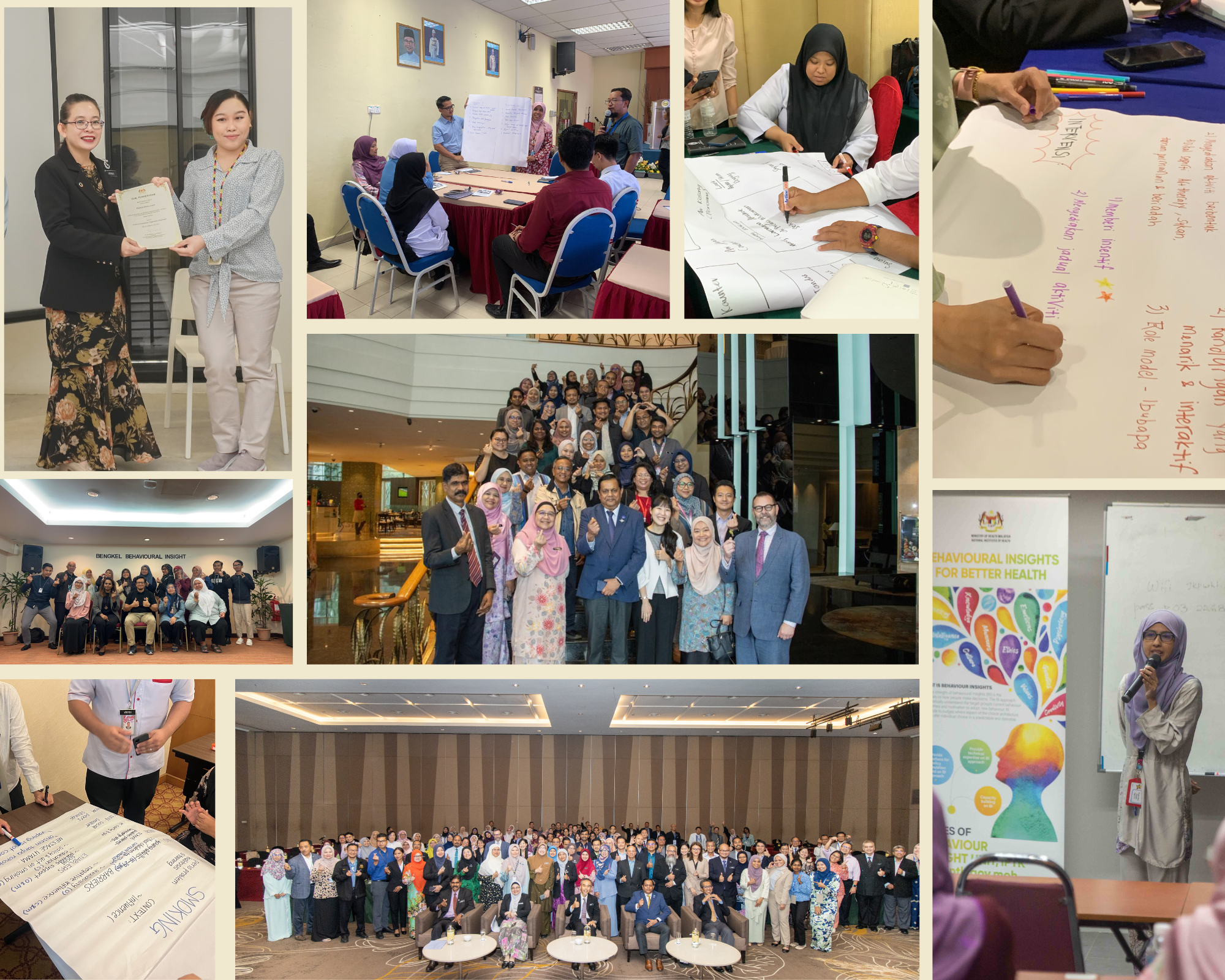REFLECTION ON HARDWORK AND ACHIEVEMENTS IN 2024 AND HELLO 2025!

The year 2024 has been a remarkable journey of hard work and dedication, marked by significant milestones in advancing behavioural insights within Malaysia's health sector. Through numerous behavioural insights training sessions with State Health Departments, ProtectHealth Corporation, the Dental Health Program, the Food Safety and Quality Program, and the Pharmaceutical Services Division, we have continued to champion the integration of behavioural science into public health initiatives.
Several impactful projects have come to fruition, including empowering communities in Sabah for malaria prevention, a pre-diabetic intervention program, a nudge-based strategy for reducing sugar consumption, and the development of behavioural assessment tools. These efforts highlight our commitment to translating insights into action for tangible health outcomes.
In addition, we have successfully integrated behavioural insights into the National Health Literacy Policy. Behavioural insights are specifically embedded within Strategy 6, under the 16th initiative, which focuses on strengthening research and development, health behaviour assessments, and evidence-based interventions.
A significant achievement this year was the successful organization of a National Townhall on the Blueprint for Behavioural Insights in Health, which gathered over 150 participants from various ministries, corporate entities, non-governmental organizations, and United Nations agencies. This inclusive platform encouraged a rich exchange of ideas, paving the way for the development of a comprehensive and forward-thinking blueprint. Building on this momentum, we convened a workshop to refine the blueprint with valuable input from stakeholders across diverse sectors. The blueprint, scheduled for launch in 2025, will serve as a strategic framework to guide Malaysia’s efforts in harnessing behavioural insights to improve health outcomes at all levels.
Last but not least, in November, we successfully conducted a scenario-based workshop with 33 participants from various divisions and professional backgrounds within the Ministry of Health Malaysia. The World Health Organization co-facilitated the workshop, where participants collaboratively addressed a public health issue and explored designing impactful behavioural interventions using the D.D.D.I.E Framework.
As we look ahead, these achievements stand as a testament to the power of collaboration, innovation, and perseverance in driving positive change.
The BI Unit IHBR
